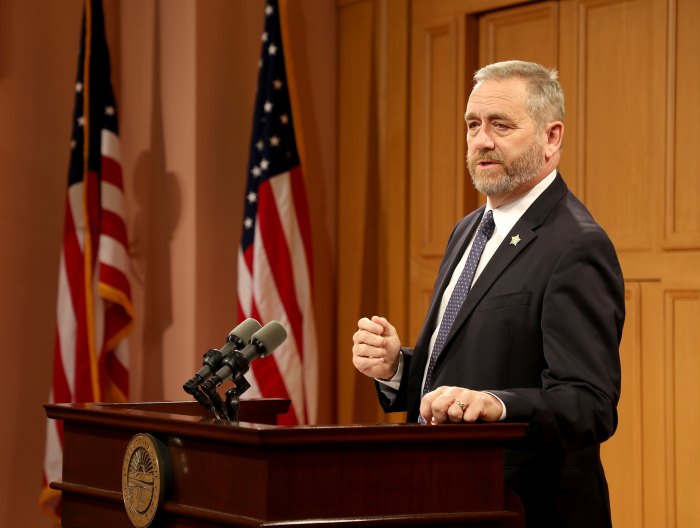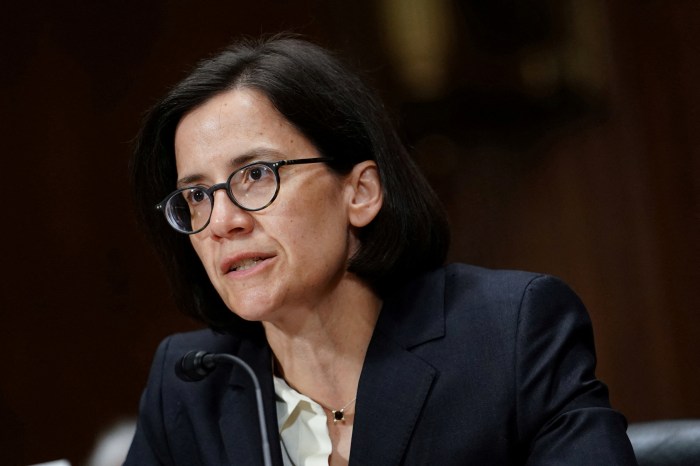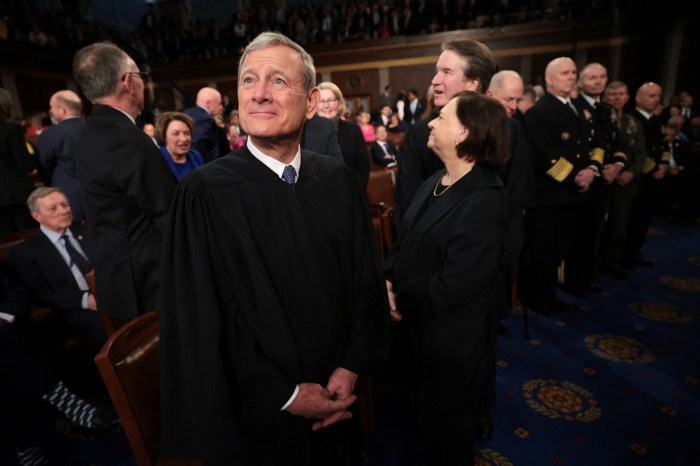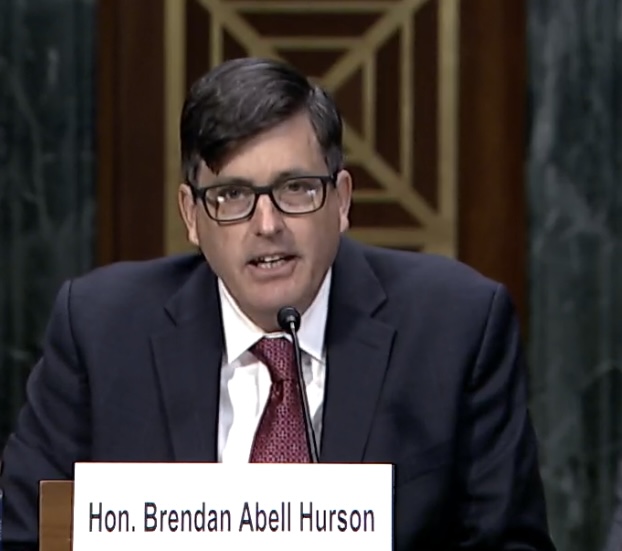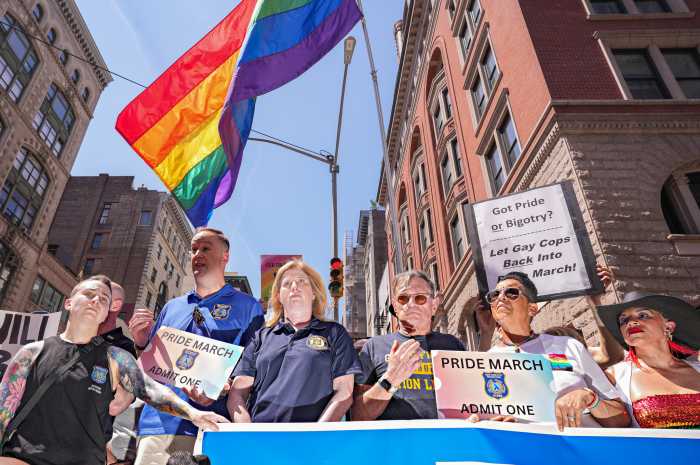A three-judge panel of the US Court of Appeals for the Ninth Circuit has ruled that Proposition 8’s enactment by California voters in November 2008 violated the 14th Amendment of the US Constitution.
The 2-1 decision on February 7 by the San Francisco-based panel upheld an August 2010 ruling by then-Chief District Judge Vaughn Walker that Prop 8 was unconstitutional, but did not embrace his expansive theories of the case.
Instead, the panel majority adopted the narrowest available constitutional argument, and in so doing avoided the question whether same-sex couples have a federal right to marry.
Specifically, the court ruled that there was no rational basis for passing a state constitutional amendment that revoked the right of same-sex couples to call their legally recognized relationship a “marriage.”
The panel was unanimous in deciding several subsidiary issues. It followed the California Supreme Court’s ruling that Prop 8’s Official Proponents are authorized to act as intervenor-defendants to represent the state's interest in defending the amendment. This was crucial since neither the governor nor the attorney general would do so.
The three judges also agreed that the current chief district judge, James Ware, did not abuse his discretion when he rejected a motion by the Proponents to vacate the ruling by Walker on the ground that Walker’s ten-year relationship with another gay man required him to recuse himself from deciding the case.
Prop 8, which stated that only the union of a man and a woman is valid or recognized as a marriage in California, came less than six months after the State Supreme Court held that same-sex couples are entitled to a legal status, called “marriage,” that would afford them all the state law rights and benefits of marriage. The voter amendment, then, carved out a limited exception from the California Constitution's equal protection requirement, depriving same-sex couples from the civil status the high court said they deserve, the State Supreme Court ruled in a May 2009 decision prompted by a state constitutional challenge to Prop 8.
In that 2009 ruling, the California high court said that the only part of its ruling a year earlier affected by Prop 8 was the ability of same-sex couples to call their status “marriage.” Since the rest of the May 2008 ruling remained in effect, said that court, domestic partnership must provide all the rights and benefits of marriage, except the right to claim the term “marriage” itself. The court also ruled that the 18,000 same-sex marriages contracted prior to Prop 8’ passage remained valid and recognized as marriages.
Anticipating correctly that the California Supreme Court would not overturn Prop 8, the American Foundation for Equal Rights (AFER), representing two same-sex couples denied marriage licenses, was prepared to immediately file its federal constitutional challenge to the amendment when the state high court ruled.
Because none of the named defendants –– Governor Arnold Schwarzenegger, Attorney General Jerry Brown (now the governor), the state officials in charge of administering marriage licenses, and the county clerks who denied marriage licenses to the two plaintiff couples –– were willing to defend Prop 8 on the merits, the Proponents were allowed to intervene as defendants. The City of San Francisco, which had been a plaintiff in the successful marriage litigation the year before, was allowed to intervene as co-plaintiff.
In August 2010, Walker ruled that Prop 8 violated the 14th Amendment on two grounds –– it denied same-sex couples a fundamental right without evidence of a compelling government interest to do so and it singled out same-sex couples for exclusion from marriage without any rational justification.
Had the Ninth Circuit panel affirmed Walker's ruling on either of those theories, its opinion would mark the first time a federal appellate court had ruled that same-sex couples have a constitutional right to marry.
And, most likely, had the three-judge panel chosen that path, the Ninth Circuit judges, as a group, would have vacated the opinion and granted rehearing by an expanded panel of 11 judges –– en banc, in legal parlance –– following a well-established practice in that circuit.
The panel majority, however, chose a narrower approach, avoiding the ultimate constitutional question and, instead, considering a question presented by the City of San Francisco during the appeals process –– whether it violated the Equal Protection Clause for the people of California to vote to rescind from one group of citizens a right that was otherwise available to all.
In other words, once the California Supreme Court ruled that same-sex couples had a right to marry under the State Constitution, same-sex and different-sex couples there enjoyed an equal right to form legal unions called “marriages.” Passing Prop 8 kept that right intact for different-sex couples and took it away from same-sex couples. The government must have at least a rational basis for treating one group differently than another.
The panel’s majority looked to the precedent established by the US Supreme Court’s ruling in the 1996 Colorado Amendment 2 case. There, the Supreme Court held that voters in that state violated the Equal Protection Clause when they enacted a state constitutional amendment prohibiting Colorado and its counties and municipalities from affording gay people specific protections under antidiscrimination law. The Supreme Court found that no rational justification supported singling out a particular group of people in this way, suggesting it was motivated by animus, an illegitimate ground for making public policy.
“Proposition 8 singles out same-sex couples for unequal treatment by taking away from them alone the right to marry, and this action amounts to a distinct constitutional violation because the Equal Protection Clause protects minority groups from being targeted for the deprivation of an existing right without a legitimate reason,” Judge Stephen Reinhardt wrote for the majority.
He concluded that even if the reasons put forward in support of Prop 8 were accepted as legitimate government interests, enacting the amendment did not advance any of them.
The Proponents and those who submitted amicus briefs in support offered four justifications for Prop 8: “(1) furthering California's interest in childrearing and responsible procreation, (2) proceeding with caution before making significant changes to marriage, (3) protecting religious freedom, and (4) preventing children from being taught about same-sex marriage in schools.”
Since California had already recognized equal parental rights for same-sex couples, Prop 8 really has nothing to do with childrearing policy, the panel found. And, there is no logical connection between denying same-sex couples the right to marry and encouraging different-sex couples to get married before having children.
Regarding religious freedom, the court pointed out that nothing in California law compels religious organizations to perform any marriage they disapprove of, and Prop 8 did not alter existing state anti-discrimination laws, which had long included protections based on sexual orientation.
The court discounted the argument about “proceeding with caution” given that 18,000 couples had already married by the time Prop 8 was enacted.
Finally, on the matter of schools, the majority found that Prop 8 had no direct effect on curriculum. The panel conceded that since schools instruct students about the reality of the world, it is likely that the right of same-sex couples to marry would come up in their education, but found that blocking them from knowledge of reality is not a legitimate state interest.
Judge N. Randy Smith's dissent focused on the issue of steering procreation into heterosexual marriage –– and his discussion seemed incredibly weak, as if he were grasping at straws. The argument conceded most points of the analysis to the majority, falling back on the notion that as long as it was “arguable” or contested that children are or are not better off in a particular kind of family, the state could rationally bar same-sex couples from marrying. His conclusion was at stark odds with the record in the case showing the large number of children being raised by same-sex couples who would be disadvantaged because their parents' unions were not recognized as marriages.
By ruling on the narrowest constitutional ground available to it, the court limited the immediate effect of its ruling to California. Given its conclusion that the state must have a legitimate reason for depriving a particular group of citizens a previously recognized right, its logic would be helpful in challenging any attempt in Iowa, for example, to put an amendment initiative on the ballot to rescind the right to marry proclaimed by that state’s Supreme Court. It would likely be less significant –– if not irrelevant –– in forestalling an effort in New Hampshire, for example, to overturn marriage equality enacted by the Legislature through a voter initiative.
The limited scope of the ruling also makes it less likely that it will merit review by the full Ninth Circuit en banc or by the US Supreme Court.
Prop 8’s Proponents, however, will almost certainly seek one or both routes of appeal, which would delay implementation of the ruling. Neither the full Ninth Circuit nor the Supreme Court, however, is obligated to hear the case, so it is not certain that it will go any further.
The panel majority left in place for at least 14 days the stay of Walker's order that has existed since 2010, and that will give Proponents time to file for further review.

